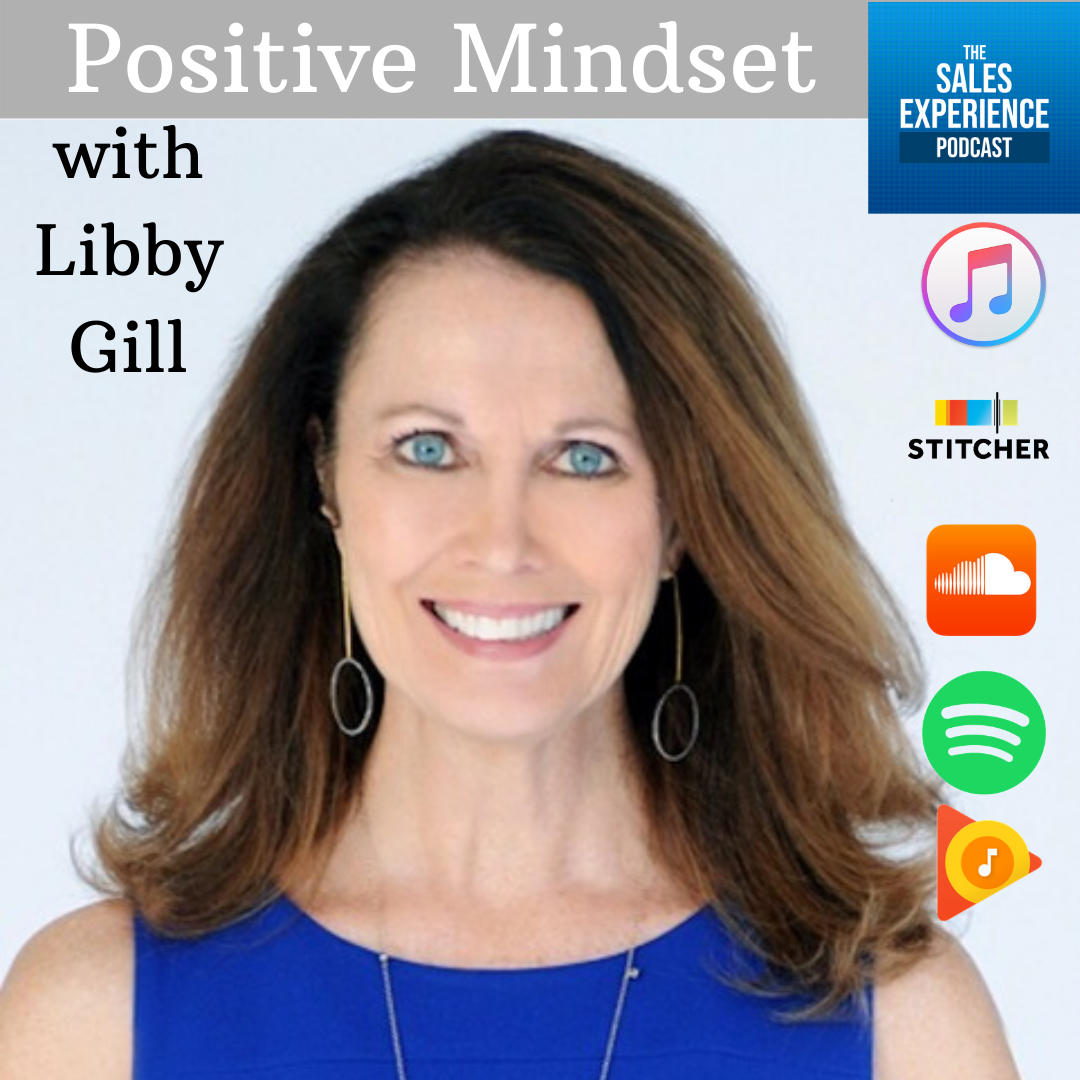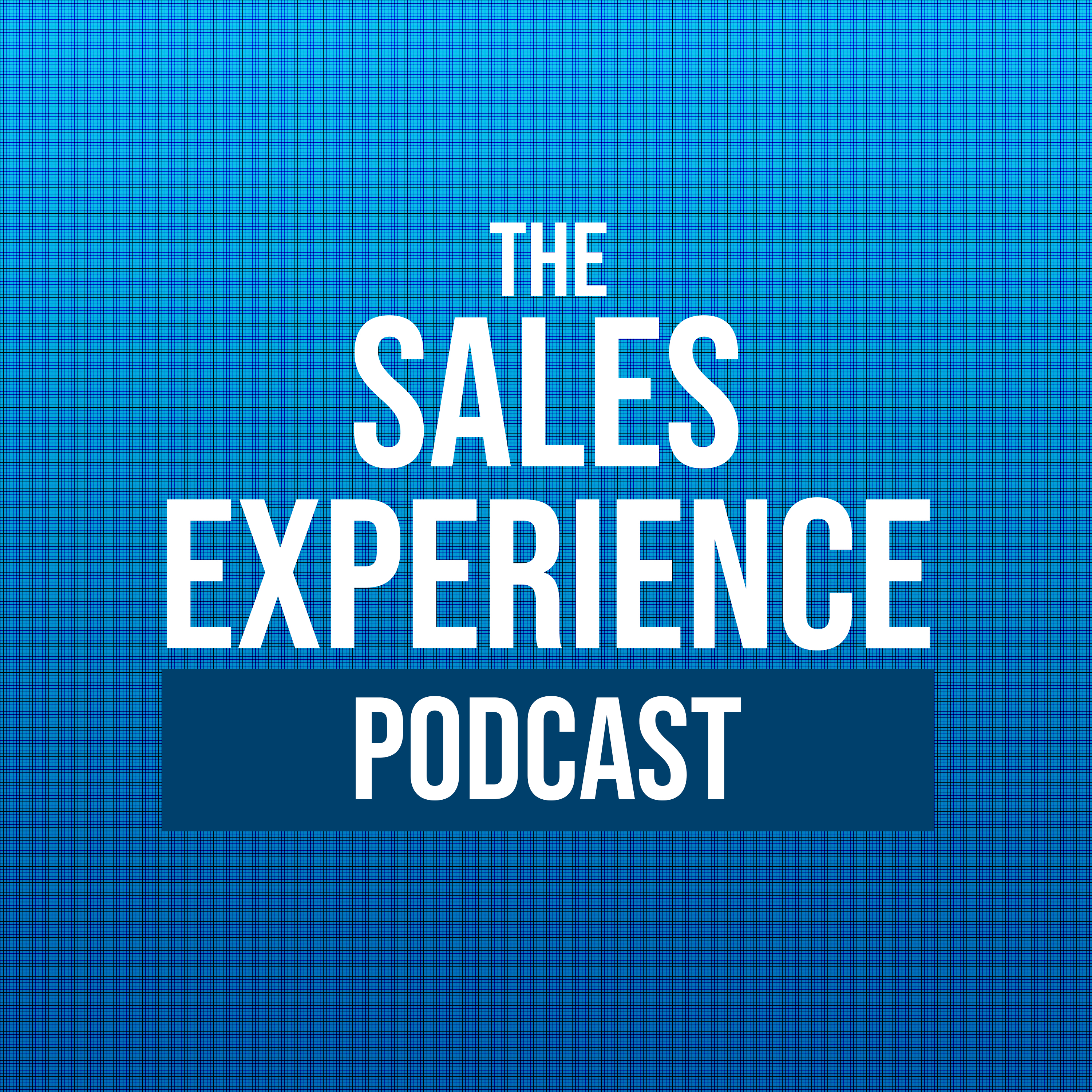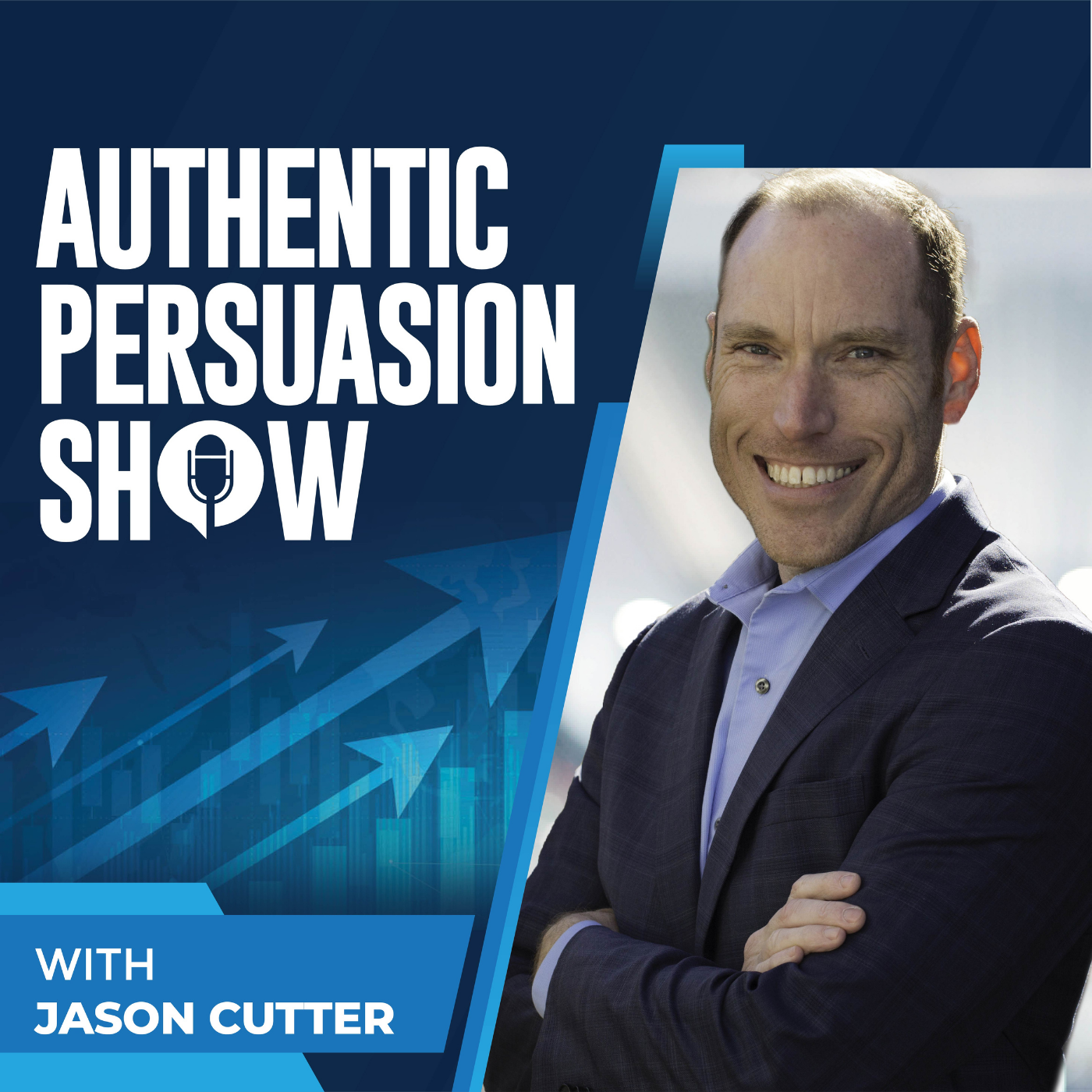Show Notes
This is the third segment of the conversation I had with Shawn.
In Part 3, Shawn and I talk about:
- Once again, talking about how sales is like dating/courtship
- Success comes when you listen more than you speak
- Using rapport in the right way
- Knowing your prospect’s industry before you make that call
Download The Power of Authentic Persuasion ebook
Enroll in the Authentic Persuasion Online Course
Connect with Jason on LinkedIn
Connect with Shawn on LinkedIn
Shawn’s Bio:
Shawn Finder has always been an entrepreneur at heart. At age 24, Shawn entered the entrepreneurial world after competing as one of Canada’s top-ranked tennis players. He started out importing packaging from the Orient and selling to top retailers in North America. However, knowing he always loved selling and list building, he founded ExchangeLeads in 2013 which helps his company build quality lists for outreaching new prospects. This was followed by his new venture Autoklose in 2017 that combines both sales engagement and list building all-in-one platform
Social Links:
LinkedIn: https://www.linkedin.com/in/shawnfinder/
Twitter: @autoklose
Instagram: @sfinds
Website: www.autoklose.com
B2B Sales Handbook: https://autoklose.com/books/b2bsales
673 Years of Sales Excellence
Book: https://autoklose.com/books/salesleaders
Books:
B2B Sales Handbook: https://autoklose.com/books/b2bsales
E174 – Transcript
Jason: Welcome to the sales experience podcast. My name is Jason cutter. Thank you for being here. So glad that you’re catching this. This is going to be part three of my conversation with Shawn Finder. If you haven’t made sure to listen to part one and part two cause we’re just going to continue on where we left off in yesterday’s episode and here you go. Let’s get right in.
Shawn: I call those little types of clients that will email, you know, CEOs or companies and tell them how they should prioritize their features for their product and what your roadmap should be. They’re kind of the clients that you, you know, I, as I tell people, not every client is good for every business and you know, I’m one of those guys that if I find a client that will be more of a headache to our organization, then will help us or help them. There’s nothing wrong with saying no to a client and denying clients
Jason: either your product or your service. And you know, I use the correlation with relationships a lot in dating. I mean, you know, if your having to beg somebody else to go on a date with you or be in a relationship, it will always be that way. You’re always going to have to justify and sell yourself to that other person. They’re going to feel like they’re in control and you’re going to have to play by their rules. And I see a lot of people in relationships that get into that because there you might be desperate or they think that’s the way it should be. And then in sales, see a lot of salespeople do that, especially with the pressure of end of quarter or end of the pay period and they think they got to get deals done so they’ve got to give it away and you know, Hey, if I can get you a better deal, is this something you’d want to do today where sometimes you have to give some deals. You know there’s, you know, you’ve got to make some allowances ensuring that that prospect is fully onboard and you know, they really wanted, but maybe there was a budgetary issue if you’re even willing to do that. And it’s funny,
Shawn: set an example because one of the examples I always tell salespeople, I say if you’re going to go on a date and you talk 90% you’re sitting up for dinner and you’ve talked 90% of the time at that dinner date, what’s going to happen? You’re probably not going to get a second day. And I go to the same thing as calling a salesperson. If you’re not, if you’re speaking 90% of the phone, you’re probably not going to have that prospect. So obviously you want to make sure that you have that correlation because dating is just like, you know, there’s kind of just like selling.
Jason: It’s all relationships. Everything in life is sales, which I say at the end of every episode that I do. And I think what’s interesting too about that date point and talking 90% is also if you start out the conversation, you sit down with your date and then you spend five minutes of a monologue talking about how great you are and the awards you’ve won and how much money you make and how great you, you know your business is. And your life that will not work. And if it does work, you’re going to be with the wrong person who’s just going to want you for those things and it’s going to probably not be a great relationship. And I see so many salespeople do that where they start out with the, you know, self-promoting monologue about how great they are and forget that the other person literally doesn’t care the 100% they don’t care. They absolutely don’t care about you and your awards and your company and how well you’re ranked and this or that. Like they don’t care. They just want to know how you can help them. Completely agree. Especially if you’re reaching out to them cold then they really want to know.
Shawn: Yeah. Yeah. It won’t work. Well if all you do is talk about yourself
Jason: now on that note here, because I’ve talked to several, you know, people in, in industries kind of like yourself or their running teams, how prepared do you feel the SDR should be in advance of actually having that conversation with that potential prospect?
Shawn: Oh, I think SDRs don’t do enough due diligence before they got on the call. You know, one thing I remember back in the day when I used to do uh, when I had a sales job, probably about seven, eight years ago now, what I used to do, it was always I, you know, I’m a big sports guy, so I would actually look on, you know, Monday night football, say Minnesota is playing Seattle. I’d actually go and start targeting PF Seattle, won that game. I would target Seattle people and actually go after only people in Seattle and say, Hey, what a great game over the Vikings last night. And Hey, no, 90% of people in well in the U S especially are very passionate about NFL. They’re for, you know, male and female. Everyone likes their football, they like their college football. So I always used to bring sports into it, but you can’t just go in, you know, empty handed.
Shawn: I always tell SDRs like, no one or two things. Like, you know, if somebody reached out to me today and said, Oh, hi Shawn, I want to, uh, I want to have a call with you, discussed my product, my product does this, this, this. But if they reached out and said, Hey Shawn, you know, I love that you played tennis and I used to play tennis tracks, used to coach it for a week. I love to introduce you to my product or showing my product or service. I’m way more willing to answer number two, the nose that I used to play professional tennis than somebody that just went out and tried to give the sale right away.
Jason: Sure. Like a little bit of research, a little bit of saying, and that’s funny about the sports example because I know especially from living in Seattle for nine years and how dead, and this was not, this was when the Seahawks were not good. They were working on being good, but they weren’t. So they were traditionally just not a good team. But the loyal base there just loved it. And it was interesting to watch the ebb and flow of the morale of the whole region relative to how the team did after a game. Right? Monday after the weekend, if the team won, you’re going to get great results out of your team, out of your people. Everyone was happy, everyone was on fire. If it was a bad game, if they lost, especially if it was a heartbreak, just discount Monday cause everyone’s going to be in a bad.
Shawn: Yeah. Yeah. I remember we did a campaign, it worked out well for some people, but when it was the Chicago bears kicker, I think he missed three field goal kicks in the same game and we started reaching out saying, you know, perky missed, but we can like something like that. And it was like, you know, we had a lot of people that were really passionate and were like, you know, you’re making a lot of people actually when you gave them so that at the end of the day you want the engagement, you know, good guy. But yeah, no, I always use sports and funding if I didn’t even realize that Seattle actually just played Minnesota. I just mentioned to you that you just played on Monday night. That was really funny.
Jason: Oh, that’s awesome. But the other part too though, and this is where I wonder where you stand, is how educated about the prospect in their business do you think the SDR should be as well? You know there’s the personal side like you said, which I think is a huge part to breaking down that barrier, that first instant wall and getting your foot enough in the door to have a conversation, but then understanding enough about the business. Because again, like I think that person who you said, if they reached out to you and they said, Hey, I used to coach tennis and this and then say, Hey, I’ve got this solution for you. When you get on the phone with person, how much discovery do you want them to do with their questions of you in the process versus how much should they already know in this day and age and not waste your time with, you know, questions they could have answered.
Shawn: That’s a great question. So you know, here’s something that I know that over the last few years I’ve, you know, tried to a teach people is let’s just use for example, a data company. Let’s just use a company that sells data. Now if I was going to sell the data, you can just call and say, Hey, we have a bunch of data we would like to sell to you. Or if you called me, it’s called somebody that was, for example, in the transportation industry and say, Hey, I have a lot of logistics contacts. So you say words that logistics for them. Or if you say to a CTO, it contacts, I think it all, you have to know a little bit about who that target market is. And you can pretty much do that in, you know, check their website, do a little bit of due diligence in 30 seconds and find out, find out who their competitors are mentioned that know if you work with one of the competitors. So I think you need to spend a little bit of time, not too much time could you still want to be able to prospect enough people, but you need to spend a few minutes before each call just to get to know a little bit about the person as well as the company to really try and get the best results from that prospect.
Jason: Now with you in a, let’s say in a self promotional way for auto close, do you guys with the technology and with what you found works well, do you serve that up to SDRs in the right way? That’s fast. And here’s why I ask this question because what I’ve seen the trend with both SDRs and with AEs at times with with closers is they want to go into that call prepared and then they spend too much time preparing. And like we talked about earlier on in our conversation, there’s the hesitation to making those phone calls and they’re basically in analysis paralysis where they want to know so much to call somebody who may not even answer. So you know, how do you serve that up? Or how do you limit your people to like, okay, I want you to know this, this and this, and then make the call.
Shawn: Well, so depending if you’re gonna, you’re gonna be very nearshore. For example, let’s just use this for example. Then let’s say for example, I was giving my ass you and say, you guys, I want you to go after this. Let’s see transportation. Okay? In that messaging where you might do that first three seconds and you want to pitch, you know, transportation companies, you know, I know for example, they work with manufacturing companies and manufacturing companies have skids that go on trucks and there’s full truck load versus no less than a truckload. So you’ve got to know that information and you put that in those key words in your message. So if I was going to reach out to transportation, I always teach even a any sales engagement tool, it could be ours or another one. You want to have something that they can relate to.
Shawn: Cause if I start saying LTD and you know, full truck load and you know, manufacturing companies, cause I know that’s a target market of a lot or transportation because they’re, you know, wholesale or distributing a product or service to other companies. So I think you have to know a little bit and put that in your messaging or else it’s just going to sound too generic. And if they’re going to get 50 messages a day, but yours is the one that says the keywords are going to make them tick, you’re more likely to get that reply.
Jason: Got it. Well and, and I think that’s an important part is especially if you can segment your efforts by industry so you know enough about the industry in general and then you can add a little bit without having to overly research, right? Because again, that’s where I see SDRs and AEs have with as they researched that say they do 10 15 minutes of background checking and compiling and they get themselves already for their strategy session, their phone call and then sometimes just literally leave a message which then now they’ve got to repeat the process again.
Shawn: Yeah and I mean, you know, nowadays, I mean there’s companies out there and there’s so much content going out that a lot of these companies you know comprised you kind of like snapshots in the morning. Like for example, if you see an email come in and say, you know, Apple merges with Samsung and you know, they’re in the teleco, you know, in the telecom space or et cetera, you know, you could use that to your advantage in your messaging. So always be looking for, you know, acquisitions and mergers in the space or you know, some of their competitors and what they’re doing. Cause any of those little things that you can mention that they’re familiar with will help them actually reply to your sequence or your email
Jason: for sure. Okay. So I am going to try something. I haven’t always been successful here on season two with the podcast, which is to go through the questions which I had sent to you in advance. So I want to go through it because I’m really fascinated about your perspective since you’ve done sales for so long and then built your organization. So the first one here is in your opinion like what does a great sales experience look like?
Shawn: So I would say a great sales experience at my company would look mean. And knowing these six things a, a sales person could identify the goals, you know, to make sure that a salesperson understands that sales is a process. I would say that it’s important for salespeople to be able to measure every step of the sales process. That is from start to finish. Also, number four would be understanding buyer’s personas. So if you’re selling to a C level person versus VP level versus like a, just a regular SDR for example, what’s going to make them tick is all different. So make sure you know their buyers personas. You know a sale does not stop once you pay. You have to know how to upgrade people down the road. Cause as you add new features, you might be adding different revenue streams. And lastly, I would say like we talked about dating, ask the right questions and ask enough questions because you want to get to know that person at that company and I as a prospect. All right,
Jason: That’s it. Another part of my conversation with Shawn makes sure to go to my website, cutterconsultinggroup.com you can find the episode transcripts, show notes, his links, the other episodes on there as well as many other topics and things that might be of interest to you. Subscribe, rate, review the show anywhere that you can. It helps other people identify this as a great tool to help them in their sales career. And as always, keep in mind that everything in life is sales and people remember the experience you gave them.
![[E174] Doing Sales Automation Right with Shawn Finder – Part 3 of 4](https://episodes.castos.com/salesexperiencepodcast/images/Shawn-Finder-Cover-Image.png)


